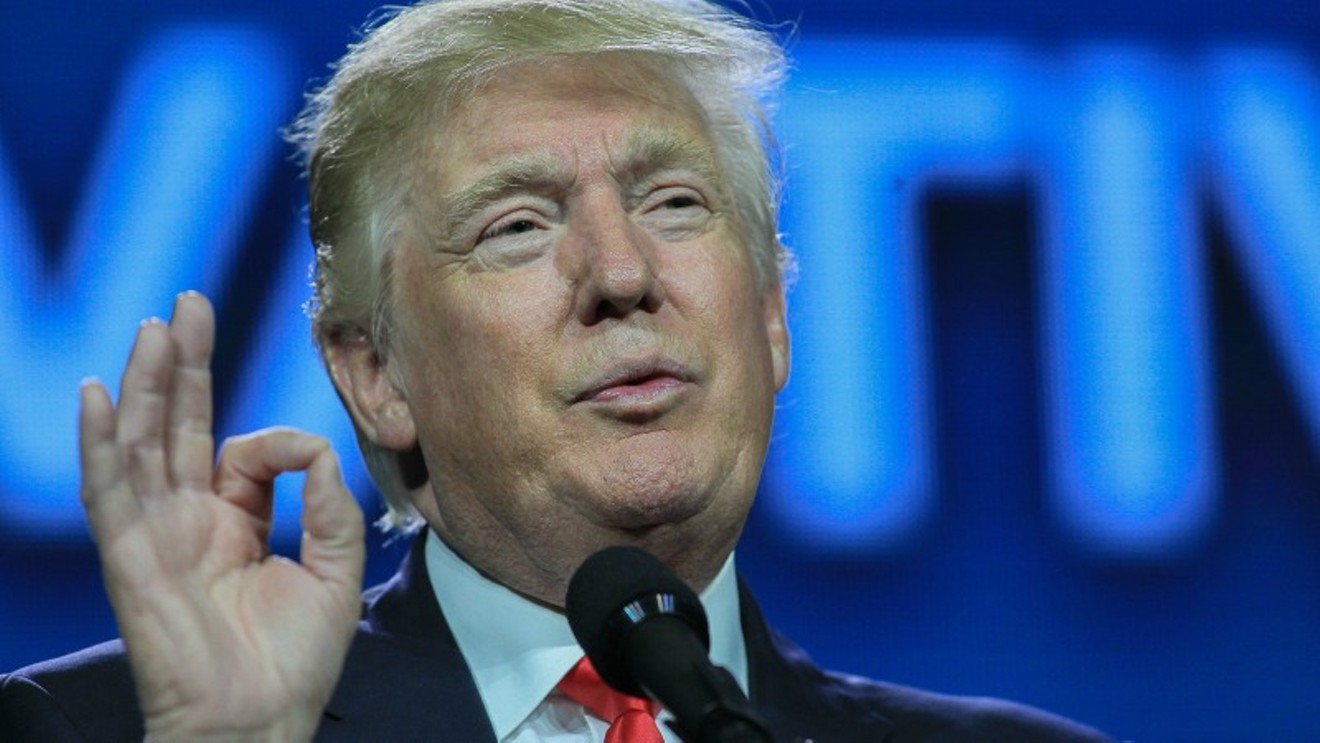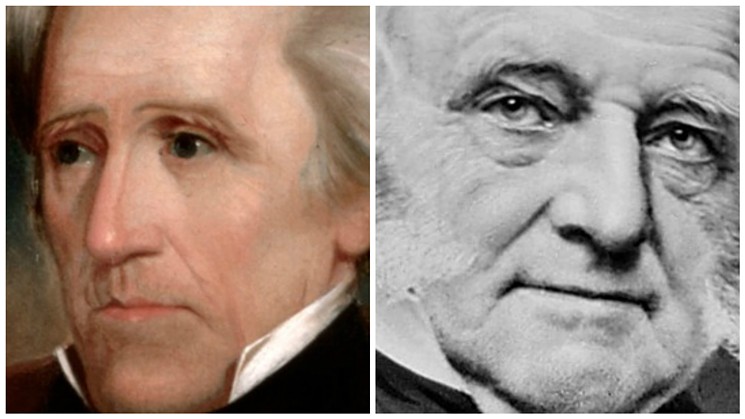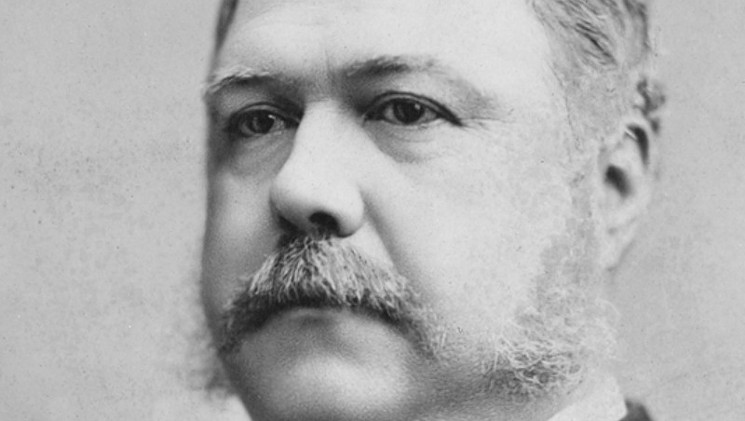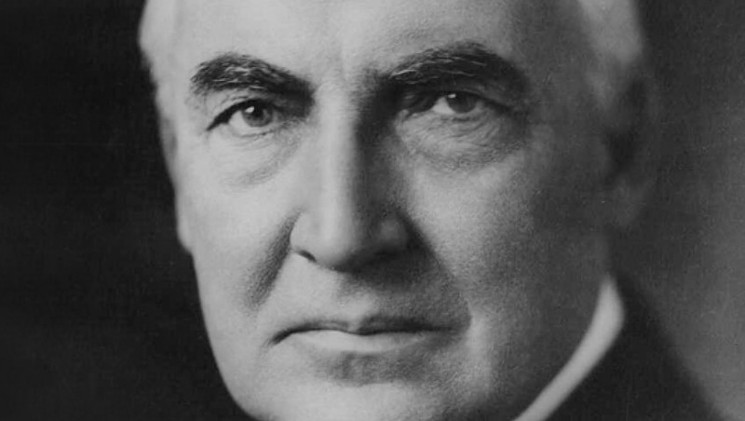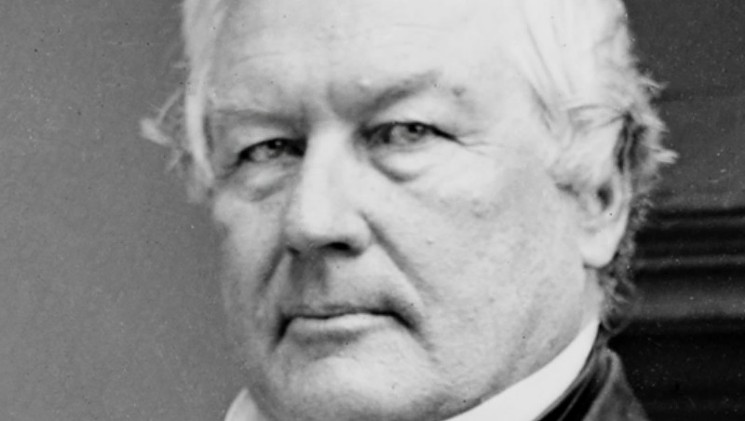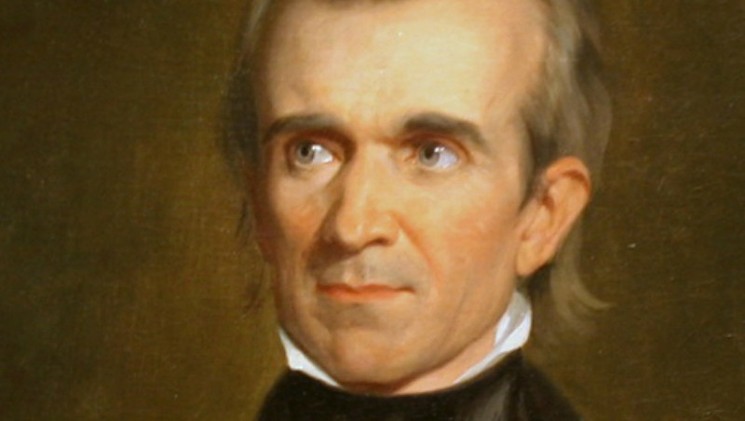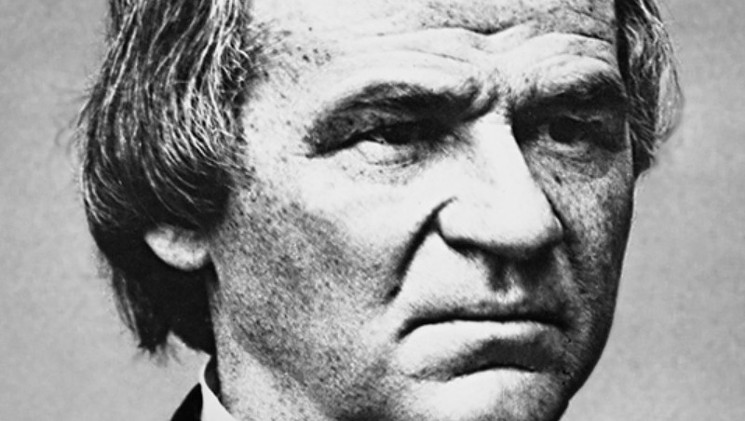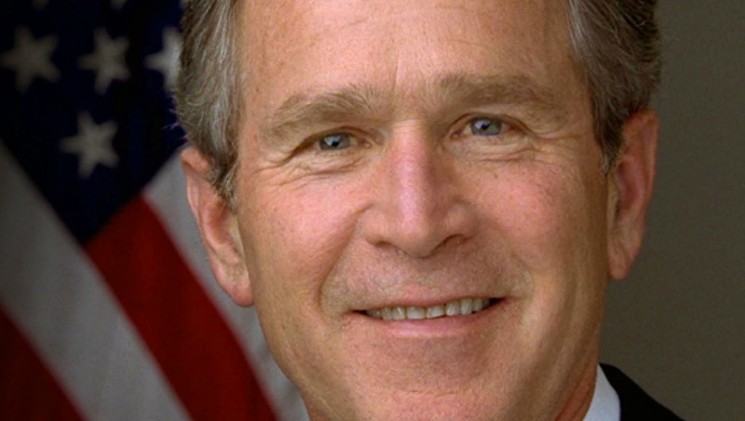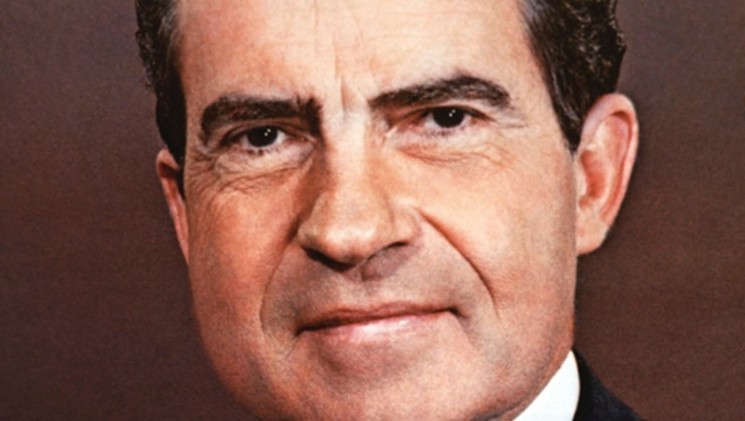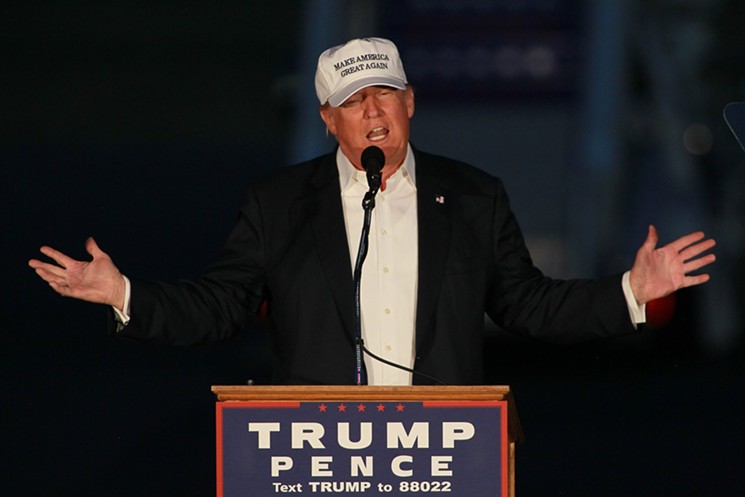On Friday, Donald Trump will be inaugurated as the 45th president of the United States. And while he clearly has plenty of supporters with high hopes for his time in office, many critics already fear that he'll join the ranks of the most ineffective, incompetent chief executives we've ever had.
What are the chances that The Donald will sink to such depths? For insight into that question, we reached out to the University of Colorado Boulder — and the school's historians definitely went the extra mile.
We were hoping that a single expert would offer picks for the five lousiest presidents. Instead, 21 members of the history department took part in a survey resulting in a bottom-ten list, with one voter, Professor Thomas Zeiler, who specializes in twentieth-century political and diplomatic history, summarizing the results for us. As a bonus, Zeiler offered his personal views about Trump's prospects, suggesting that he could combine the negative attributes of two different men on the roster.
Even if that comes to pass, Trump isn't guaranteed to take up residence at the bottom of the barrel. But he'll have a shot.
Continue to count down Zeiler's explanations of the CU participants' picks for the ten worst presidents, along with his take on Trump.
Number 10 (tie): Andrew Jackson and Martin Van Buren
Jackson: 7th President of the United States
Time in office: March 4, 1829-March 4, 1837
Van Buren: 8th President of the United States
Time in office: March 4, 1837-March 4, 1841
"The reason Andrew Jackson made the list was the Indian Removal Act. It's the Trail of Tears, which cleared out Native Americans from the Southeast. It's considered one of the great civil-rights infractions, like the Japanese-American internment camps during World War II.
"Jackson was a general, but he really wasn't prepared for office. He got a plurality of the vote in 1824 but eventually lost to John Quincy Adams in the Congress before being elected four years later. He came in and purposefully undermined a lot of the nation-building legislation that had gone on. A national bank, for example. And he's also sort of blamed for a spoils system in American politics, where he gave his friends and others positions and influence. But the most important reason he's here is the Indian Removal Act, which is one of the great shames in American history. I think it sullied his reputation with historians, who had looked at him as sort of a hero as a general in the War of 1812. He won the Battle of New Orleans, too — and the Indian Wars.
"Martin Van Buren was president right after Andrew Jackson. There was a bad economy, and he's blamed in part for a very bad economic depression in the 1830s — the worst depression for a very new country up until that time. And he was one of Andrew Jackson's key advisers. So Jackson's Indians policy — I think Van Buren is getting some of the heat for that, too."
Number 8: James Buchanan
15th President of the United States
Time in office: March 4, 1857-March 4, 1861
"James Buchanan gets blamed for the Civil War. He sort of allied with the South to try to prevent the war — a breakaway by the South. But he couldn't do it. And he was looked at as extremely ineffective as a president. Perhaps the war could have been headed off or shortened, or something else could have happened, if he had been more effective.
"He was nominated by the Democratic Party, and he wasn't involved in all the legislation and movement toward the Civil War, but it was certainly a tactical, strategic error to side with the South. Admitting Kansas to the Union as a slave state sort of alienated the Republicans who were against slavery, as well as other northern Republicans. So in a way, he sort of broke apart the whole party system. He couldn't unite the country in any way. It just got more and more divided by pro-slavery and anti-slavery."
Number 7: Chester Arthur
21st President of the United States
Time in office: September 19, 1881 – March 4, 1885
"I think Chester Arthur got on the list because he was pretty inconsequential. He replaced James Garfield, who was assassinated. Garfield was shot, then got an infection and died. There were high hopes for him, but then he died — and Arthur wasn't always in great health and didn't do a whole lot.
"The most significant thing that he did was put in the Pendleton Act, which was civil-service reform. But he's blamed for not responding better to calls for building a bigger Navy in the 1880s, and he was kind of a machine politician who got in there just because he was from New York. Things like that epitomize that kind of nineteenth-century Gilded Age machine politics. He also signed the Chinese Exclusion Act, which prevented Chinese people from coming into the country."
Number 6: Warren Harding
29th President of the United States
Time in office: March 4, 1921-August 2, 1923
"Warren Harding was very good-looking. Women liked him. He had been in politics in Ohio, so he was somewhat prepared to be president, but he basically turned over his administration to friends and allies. It is under Harding, for example, where you had the famous Teapot Dome scandal, where you had the Secretary of the Interior, Albert Fall, lease government-owned oil reserves. They were there post-World War I for security purposes; if we were in a war, they would be there for us. But he leased them secretly, and he became the first cabinet member in American history to go to jail. And then Harding died in office, too.
"He was the first of three Republicans in the Roaring Twenties, but he was really looked upon as a guy who couldn't have cared less."
Continue to learn about CU professors' picks for the five worst presidents of all-time, plus a personal take on Donald Trump's chances of breaking into their ranks.
Number 5: Millard Fillmore
13th President of the United States
Time in office: July 9, 1850-March 4, 1853
"What you're dealing with when it comes to Fillmore, like a few of these others, is slavery, which is the biggest issue of the nineteenth century, and how to unite the country. He supported the Compromise of 1850, which didn't stop the Civil War. And even though he was elected as a Whig, he was also associated with the Know Nothings, which was an anti-immigrant party.
"Fillmore was trying to stop slavery, but he couldn't do it — and nobody knew what the future held. We know now that it led to the horrible Civil War."
Number 4: James Polk
11th President of the United States
Time in office: March 4, 1845-March 4, 1849
"James Polk was a very aggressive president who accomplished all of his aims. This was the time of Manifest Destiny, the expansion of the United States — and Polk launched the Mexican-American War. And wherever you come down on immigration today, it can be traced back directly to the Mexican-American War.
"Again, he did succeed in his agenda. He wanted Texas to break away, and we got Texas; we got all that stuff. But does might make right? Or does that create other problems? Was it the right thing to basically lop off one-third of Mexico? A lot of people would say yes. Otherwise, we wouldn't have Santa Fe and a nice place to shop for art or the nice weather in Arizona. But Polk looked like the first president who was truly imperial, or who pushed imperialism.
"Polk also threatened war with Britain over the Oregon Territory. This was an example of the super-nationalism of the mid-nineteenth century. And I imagine he was also trying to distract the country from the slave debate, which he couldn't do. He stood up for American interests and power around the world with little thought for the people living where he was invading. And twelve years after he left office, the Civil War started. Can you blame him for the Civil War? No, but in a lot of ways, he was fairly irresponsible when it came to conflict."
Number 3: Andrew Johnson
17th President of the United States
Time in office: April 15, 1865-March 4, 1869
"Andrew Johnson was following one of the greats, obviously; he came in when Lincoln was assassinated. He was a good politician and a governor and a senator, as well as another one of those who couldn't stop the Civil War. And in a sense, he couldn't keep the Republican Party unified. He wanted to reestablish civilian government after the Civil War, but historians look at what he did as a failure.
"Lincoln had said, 'We'll take over from the states, we'll take them over for a while, we'll have elections, but we'll have to be lenient with them. Malice toward none.' Johnson took a different view. He allowed the Republicans to fracture into radicals who really wanted to punish the South and give civil rights to African-Americans and the more mainstream moderates who just wanted to keep Democrats out of power and wanted to keep former Confederates out of power — but the rest of the South could join in. So it just basically kind of blew up in his face.
"Johnson got some support from the Republican Party in the north, but I think a lot of people believe he was just too lenient. He let the South back in without big punishment and especially without protecting Reconstruction — or at least without giving African-Americans their civil rights and protections for it. You had the old Freedmen's Bureau, but the Republicans were already formulating their Black Codes, the Jim Crow system. So Andrew Johnson is in part to blame for one hundred years of Jim Crow. This was a Civil War against slavery, but then there was a hundred years until the 1960s before you had the end of legal segregation."
Number 2: George W. Bush
43rd President of the United States
Time in office: January 20, 2001-January 20, 2009
"George W. Bush came in under a cloud because of a disputed election. He was lucky that the Supreme Court was largely made up of Republican appointees, or at least appointees who were not willing to get into a fight with the lower courts. He followed a fairly eloquent president in Bill Clinton, and he was a fairly inarticulate governor from Texas. There was also his personal history — being an alcoholic and all that stuff. So he was, in many ways, not prepared at all for the presidency. But 9/11 saved him. People will rally around the president in a crisis. But he failed to create unity in the country.
"He responded to terrorism, and a lot of people believe that was a mostly proper response. But I think people are uncomfortable with how much the country changed, and it also brought into question the ethic of globalism, of openness, because we were going to be more closed. And when he decided to go into Iraq.... Afghanistan, with NATO — everyone understood that. But Iraq looked like a personal vendetta, or a way to get cheap oil or whatever it was. But it was a failure. He got Saddam Hussein, but we're still living with the fallout from that war. And Afghanistan went bad, too. Both of those wars went wrong.
"He was so unpopular that the Democrats made big mid-term gains in 2006, and any Democrat probably would have won in 2008, because by that time, the whole housing market had collapsed. When you do that in America — when you collapse either automobiles or housing, which are two big bellwethers of the economy — you're in big trouble. That led to a huge downturn, an economic disaster. All that's directly traceable to Bush."
Number 1: Richard Nixon
37th President of the United States
Time in office: January 20, 1969-August 9, 1974
"I went back and forth on this one, because Richard Nixon accomplished a hell of a lot. While he slowed desegregation, he actually spent more on poverty programs than Lyndon Johnson did during the War on Poverty. And there was also Earth Day and the opening to China. Don't forget the first arms-control agreements with the Soviet Union, the SALT agreements. And he did get America out of the Vietnam War, although it took him four additional years to do it. They didn't need to wait until 1972. They had the plan in 1969. And that was a disaster.
"But domestically, he presided over, really, the first oil crisis, and he may have been demented psychologically. He had tremendous insecurity, being a West Coaster who was never really accepted by the Eastern establishment. And he'd been tainted by corruption going all the way back to when he was a vice-presidential candidate with Eisenhower. And, of course, there's Watergate.
"You have the president resigning, the first president ever to resign. He would have been impeached, he would have been brought up on criminal charges, and he would have gone to jail for covering up the break-in. This was criminal, felonious behavior, and I think he set the tone for this moment of history we're in forty years later. The cynicism that came from the resignation has led to the cynicism we have toward politicians in general and toward professions, toward doctors and lawyers, with Americans getting very bitter and voters getting turned off. So he was a very influential president, but I think you have to come down on him very negatively. Resigning from office? That's an abject failure."
Donald Trump
"Trump isn't a Republican like Richard Nixon was. Nixon probably couldn't be elected as a Republican now; that was the liberal wing of the Republican Party. And Bush was more in line with the corporate Republicans, which had mainstream views about corporate trade, open borders and immigration. Let's face it: Bush wanted immigration because it's cheap labor. But that's much different from Trump, who has sort of retreated back to a much older style of the Republican Party that really sort of petered out in the 1940s: populist, nationalistic Republicans.
"But like Andrew Jackson, Trump isn't really prepared for office. Jackson was also a guy who was sort of a populist who shot from the hip, a lot like Donald. And Harding is someone else he can be compared to. Harding was a guy who sort of picked and chose and had fun on his own while he let others run his administration, because he was incapable of doing it himself.
"So Trump could also turn out to be a combination of Jackson and Harding."
[
{
"name": "Air - MediumRectangle - Inline Content - Mobile Display Size",
"component": "12017618",
"insertPoint": "2",
"requiredCountToDisplay": "2"
},{
"name": "Editor Picks",
"component": "17242653",
"insertPoint": "4",
"requiredCountToDisplay": "1"
},{
"name": "Inline Links",
"component": "18838239",
"insertPoint": "8th",
"startingPoint": 8,
"requiredCountToDisplay": "7",
"maxInsertions": 25
},{
"name": "Air - MediumRectangle - Combo - Inline Content",
"component": "17261320",
"insertPoint": "8th",
"startingPoint": 8,
"requiredCountToDisplay": "7",
"maxInsertions": 25
},{
"name": "Inline Links",
"component": "18838239",
"insertPoint": "8th",
"startingPoint": 12,
"requiredCountToDisplay": "11",
"maxInsertions": 25
},{
"name": "Air - Leaderboard Tower - Combo - Inline Content",
"component": "17261321",
"insertPoint": "8th",
"startingPoint": 12,
"requiredCountToDisplay": "11",
"maxInsertions": 25
}
]

